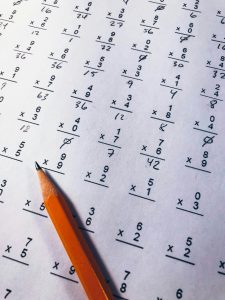Why Math Puzzles Are Essential for Brain Development in Kids

As a parent, you want the best for your child. You understand the importance of education and the role it plays in shaping their future. But what if your child is struggling with mathematics? It can be frustrating to see them struggle with numbers and concepts that seem so simple to you. However, there is a fun and effective way to help your child develop strong mathematical skills – through math puzzles. By incorporating play puzzles into their learning routine, you can unlock their potential and foster their cognitive development in a way that is both enjoyable and educational.
Enhancing Problem-Solving Skills
Math puzzles are not just a source of entertainment; they are powerful tools for enhancing problem-solving skills in children. When children engage with math puzzles, they are required to think critically and develop strategies to arrive at solutions. This process fosters problem-solving skills and enables kids to approach challenges methodically. They learn to analyze situations, identify patterns, and devise solutions – skills that are not only vital in mathematics but also in everyday life. So, by encouraging your child to play puzzle games, you are equipping them with valuable problem-solving abilities that will benefit them throughout their lives.
Promoting Logical and Analytical Thinking
Engaging with math puzzles encourages logical reasoning and analytical thinking in children. These puzzles help children connect mathematical concepts with real-world applications, enabling them to understand the “why” behind the “what” of math. This deeper comprehension aids them in developing a logical approach to problems, enhancing their ability to think critically about various subjects. By exploring different puzzle scenarios and applying logical strategies, children develop a solid foundation for logical and analytical thinking, which is essential for success not only in mathematics but in all areas of life.
Building Concentration and Focus
Solving math puzzles demands sustained attention, which helps improve a child’s concentration levels. As they work through complex problems, they learn to focus on tasks for extended periods – a skill that is beneficial across all areas of learning. The ability to concentrate is crucial for academic success, as it allows children to absorb information effectively and complete tasks efficiently. By engaging in math puzzles regularly, your child can develop concentration and focus that will benefit them not only in mathematics but in all their academic pursuits.
Encouraging Flexibility in Thinking
Math puzzles often require children to think outside the box and explore multiple solutions. By encouraging flexible thinking, these puzzles enhance a child’s flexibility in approaching problems. Instead of relying on rote memorization, puzzles push children to consider various strategies and solutions. This fosters adaptability in thinking, as they learn that there are multiple ways to approach a problem. By engaging with math puzzles, your child will develop innovative thinking skills that will help them tackle challenges throughout their lives.
Boosting Confidence and Motivation
Successfully solving math puzzles can significantly boost a child’s confidence. The sense of accomplishment that comes from overcoming a challenging puzzle reinforces their belief in their abilities. This positive reinforcement motivates them to tackle more complex mathematical concepts and challenges in the future [3][4]. When children experience success in solving puzzles, it instills a sense of pride and self-confidence that carries over into other aspects of their lives. By incorporating math puzzles into your child’s learning routine, you are providing them with opportunities to build confidence and motivation to excel in mathematics.
Supporting Social Skills and Collaboration
Math puzzles can also support the development of social skills and collaboration in children. When children work on puzzles together, they communicate their thought processes and strategies with their peers. Collaborative problem-solving fosters teamwork and allows children to learn from one another, enhancing their overall learning experience. By engaging in puzzle-solving activities with other children, your child will not only improve their mathematical skills but also develop important social skills such as communication, cooperation, and teamwork.
In conclusion, math puzzles are not just fun activities; they are essential tools for brain development in kids. By enhancing problem-solving abilities, promoting logical thinking, building concentration, encouraging and boosting confidence, and fostering social skills, these puzzles provide a comprehensive approach to learning that prepares children for future academic success and everyday challenges.
If you want to give your child a head start in mathematics and cognitive development, consider enrolling them in SIP Abacus courses. SIP Abacus offers world-class skill development programs that aim to unlock the mental potential of children through fun learning methodologies. Their programs focus on developing skills in mathematics and overall development.
So, why wait? Embrace the power of play puzzles and set your child on a path towards mathematical success. Start incorporating math puzzles into your child’s routine today and witness the transformation in their cognitive abilities firsthand.



